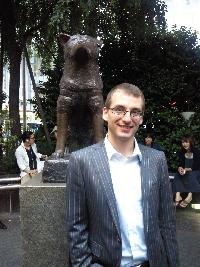| Страниц в теме: < [1 2 3] | Poll: Will machine translation ever replace human translators? Автор темы: ProZ.com Staff
|
|---|
Rolf Kern 
Швейцария
Local time: 06:14
английский => немецкий
+ ...
Памяти
Because in my over 30 years of translation practice I have seldom met a text without errors in grammar, logic, word choice, accuracy, misspelling, omissions, redundancy etc. etc. We translators can improve the situation, a machine can only make it worse. And there is practically no translation where I do not have to ask questions to the client or make a suggestion for improvement, whereby the client writes "sorry, you are right". Lately I had a typical case:
Volume 57 pages (manual for a m... See more Because in my over 30 years of translation practice I have seldom met a text without errors in grammar, logic, word choice, accuracy, misspelling, omissions, redundancy etc. etc. We translators can improve the situation, a machine can only make it worse. And there is practically no translation where I do not have to ask questions to the client or make a suggestion for improvement, whereby the client writes "sorry, you are right". Lately I had a typical case:
Volume 57 pages (manual for a machine tool)
Numer of questions or suggestions. 50 (fifty)
Foget the translation machine.
Best regards
Rolf Kern ▲ Collapse
| | | | | | | Of course NO! | Oct 12, 2011 |
Machine translation will never replace humans because translation is a blend of human arts, senses and judgment. a man should employ all these to come with a good piece of translation work. Unless there will be a machine that has the same capacities, nothing can replace human translators. Fortunately, nobody is able to create such holy machine!
| | | | Mario Chavez (X) 
Local time: 00:14
английский => испанский
+ ...
| Of course I am certain: MT will never replace translators | Oct 12, 2011 |
Nicole Schnell wrote: A translator is a writer and an author. I yet have to be convinced of any benefits of being replaced by machines. Maybe after we are dead or something. 
Finally some sense! I also am of the opinion that translators are writers and authors (think Jorge L. Borges, for example). Even when we produce highly technical documentation in other languages, we are creating. MT's likeliest role now or in the future is to recycle texts created by us (good and bad texts, that is).
I read, however, an article about software that can "write" quite intelligently. Narrative Science, a startup in Evanston, Ill, has created a software that turns data into news articles. In other words, this software mimics the craft of writing by using raw data to stitch a journalistic yarn. From their website, I quote: "We tell the story behind the data. Our technology identifies trends and angles within large data sources and automatically creates compelling copy. We can build upon stories, providing deeper context around particular subjects over time. Every story is generated entirely from scratch and is always unique." (http://www.narrativescience.com/solutions.html).
Of course, there will always be a market space for MT, gist translation, Google Translate and software similar to Narrative Science. Let's remember that the narrative of the translation industry is quite incomplete --it's not just what the big guys (SDL, Lionbridge, Bowne, etc.) are feeding us with their marketing propaganda. The more direct clients I acquire, the more aware I am made of new market niches that I had no idea about before.
| | |
|
|
|
Mario Chavez (X) 
Local time: 00:14
английский => испанский
+ ...
| One more thing... | Oct 12, 2011 |
Sometimes I wonder about some of my colleagues. Those translators who believe that MT or some future iteration of it will replace human translators seem so dazzled by technology that they readily forget what a translator is, first and foremost: a writer.
As Jorge L. Borges once wrote, the translation is unfaithful to the original. Shall we be reminded that there is no such thing as a superior original? Translations are not even clones or derivative work, in my opinion. Translations ... See more Sometimes I wonder about some of my colleagues. Those translators who believe that MT or some future iteration of it will replace human translators seem so dazzled by technology that they readily forget what a translator is, first and foremost: a writer.
As Jorge L. Borges once wrote, the translation is unfaithful to the original. Shall we be reminded that there is no such thing as a superior original? Translations are not even clones or derivative work, in my opinion. Translations are other originals, that's all. ▲ Collapse
| | | |
Or at least, so I voted.
The only way I see true, usable-for-any-situation MT becoming a reality would be with the invention of true AI. Translating meaning necessitates understanding and understanding necessitates consciousness. Especially with context - in Japanese, whole passages can go by without the subject being explicitly stated, which works fine and dandy for Japanese but makes it impossible to accurately translate it into English on a sentence-by-sentence basis.
... See more Or at least, so I voted.
The only way I see true, usable-for-any-situation MT becoming a reality would be with the invention of true AI. Translating meaning necessitates understanding and understanding necessitates consciousness. Especially with context - in Japanese, whole passages can go by without the subject being explicitly stated, which works fine and dandy for Japanese but makes it impossible to accurately translate it into English on a sentence-by-sentence basis.
However, even if we ever managed to create a true, human level (or beyond) AI, would we use it just to translate some documents? Assuming that a true AI can be created, I see two possibilities as to its nature: either each AI is unique and has to be 'grown' through experience like a living person or you can make unlimited copies of the AI and run it on any computer that can power it like any other piece of software. If it ends up being the first possibility, it will be far too precious to use for 'mere' translation and far too expensive to make it profitable even if you did. If it ends up being the second possibility, that AI plus some general-purpose robot bodies means that virtually every person on the planet will be out of a job and we'll either enter a sci-fi paradise where people only work for pleasure or most of the world's population will revert to a literal hunter-gatherer existence to survive while the handful of CEOs that run the robot and AI companies live a cushy existence until their eventual overthrow by their cybernetic slaves.
Even if you had an AI translating, you'd need to equip it with many of the same tools a human translator needs, like internet access to research new terms and confirm terminology use (as this is constantly evolving, especially in technical fields) and even a phone line so it could confirm, for example, names of businesses that have no website, which is a big concern in Japanese and other languages that use a writing system not descended from Latin. Or you could just have it email those names to you so you can confirm them. Not deal-breakers, to be sure, but that AI translator starts to have the same concerns and drawbacks that a human translator has, though presumably it would work like a slave for free once you bought or rented it.
My ultimate concern, though, would be whether you could truly trust this AI, especially with sensitive information. What if it got hacked? Your company could lose all of its trade secrets in one blow because everything was being funneled through the AI for translation and all of that data was sitting in the AIs files for future reference. Further, how can you be absolutely sure that it's translating everything correctly? Of course, human translators make mistakes as well, but how do you check the machine's translations? With a human translator? With another, but different AI? And then there's the fact that it's just not a human intelligence -it's not using a human brain, evolved over countless generation to have specific features that operate within a fairly definite range even between different people. It would be using software and a computer, or maybe a specialized device designed to facilitate AI, to operate. Either way, that's not a human brain and it's not going to think exactly like a human. If you give it its freedom and allow it to build trust like any living person - by working and not screwing up and holding it accountable for its action when it does - that's one thing. But trusting what is effectively an alien slave is probably not something a lot of companies would want to do when faced with the reality.
But I should stop now that I'm neck-deep in science fiction. I think Steve Vitek said it best, however, on his blog* when he asked "Do you think that it is possible to create software, similar to machine translation software, that would write steamy romance novels that women would actually be buying and reading?"
*http://patenttranslator.wordpress.com/2011/02/22/another-missed-opportunity-to-say-something-meaningful-about-machine-translation/ ▲ Collapse
| | | | | I'll say never | Oct 12, 2011 |
Not because I feel sure there is a limit to the potential ability of machines to translate - I really don't know - but because I feel sure there is a limit to the ability of humans to trust machines. People (who care about a good translation and who are risk-averse) will always get a human to check.
Unless it comes to be the case that machine translation is less error-prone than human translation. This might already be the case with certain kinds of texts, but it's hard to imagine i... See more Not because I feel sure there is a limit to the potential ability of machines to translate - I really don't know - but because I feel sure there is a limit to the ability of humans to trust machines. People (who care about a good translation and who are risk-averse) will always get a human to check.
Unless it comes to be the case that machine translation is less error-prone than human translation. This might already be the case with certain kinds of texts, but it's hard to imagine it could be the case with all of them.
MM ▲ Collapse
| | | | | Machine translation is only an asset for modern translation | Oct 12, 2011 |
In the past years I have discovered that MT is an asset to speed up deliveries of translations or help in repetitive texts. For me human translation remains the best solution if texts should remain "understandable" for customers or end users. Up to now there is no "thinking" computer and what the human brain can do has been tried for more than 40 years. Despite huge computer systems no technician has managed to replace the human brain... Therefore is MT part of the future but not the final solut... See more In the past years I have discovered that MT is an asset to speed up deliveries of translations or help in repetitive texts. For me human translation remains the best solution if texts should remain "understandable" for customers or end users. Up to now there is no "thinking" computer and what the human brain can do has been tried for more than 40 years. Despite huge computer systems no technician has managed to replace the human brain... Therefore is MT part of the future but not the final solution. ▲ Collapse
| | |
|
|
|
Alex Lago 
Испания
Local time: 06:14
английский => испанский
+ ...
| In the future who knows | Oct 12, 2011 |
Simon Bruni wrote:
I'm not sure I agree. Ask a neurologist how much we know about the brain, and they will tell you that we know virtually nothing, and even less about how it learns and produces language, which seems to draw on many different brain functions.
Yes it's true we don't know much about the brain, but what I tried to say was that everyday we know more and our knowledge grows exponentially, that does not mean we know everything, it just means we learn more and more each day.
Maybe you believe we will never get to understand the way the brain works, I personally believe we will and I gave the example of the UC Berkeley experiment as one more step forward on that road. Or do you think neurologists 40 years ago would have thought it was possible to "read" images from someone's mind?
This will probably not happen in my/your time but many neurologists do believe we will one day get to understand the brain (same way many neurologists believe it is too "complex" for us to fully understand), so what I was trying to say was that answering NO or NEVER to this question seems a bit drastic to me because we have no way of knowing what future technology will be like. As Arthur C. Clarke said "Any sufficiently advanced technology is indistinguishable from magic".
If the question was "Can it do it now?" then the answer would definitely be no, but in the future I still believe the right answer is who knows?
| | | | | MT will never replace humans | Oct 17, 2011 |
Folks,
It is regrettable that this question has been posed. Note that the MT practitioners who have responded to date have all said 'never', and I agree. Translators have this fear, but it is ill-founded. It has not been put about by MT practitioners, that's for sure. The acronym FAHQMT (Fully Automatic High Quality Machine Translation) has disappeared, which is a good thing. I've been teaching students about MT for 20 years, and have made it absolutely plain -- as recently in a talk I gav... See more Folks,
It is regrettable that this question has been posed. Note that the MT practitioners who have responded to date have all said 'never', and I agree. Translators have this fear, but it is ill-founded. It has not been put about by MT practitioners, that's for sure. The acronym FAHQMT (Fully Automatic High Quality Machine Translation) has disappeared, which is a good thing. I've been teaching students about MT for 20 years, and have made it absolutely plain -- as recently in a talk I gave to DGT translators last Friday -- that forever and a day, the translator will remain the most important part of the translation pipeline. With the advent of SMT, the translator has become even _more_ important: where do the training material come from in the _first_ place?
If translators want to put specific questions to us as to why they think that they may be replaced by MT, then I -- and Muriel, I'm sure -- will be happy to debunk them!
Cheers,
Andy. ▲ Collapse
| | | | | Страниц в теме: < [1 2 3] | To report site rules violations or get help, contact a site moderator: You can also contact site staff by submitting a support request » Poll: Will machine translation ever replace human translators? | Trados Business Manager Lite | Create customer quotes and invoices from within Trados Studio
Trados Business Manager Lite helps to simplify and speed up some of the daily tasks, such as invoicing and reporting, associated with running your freelance translation business.
More info » |
| | Protemos translation business management system | Create your account in minutes, and start working! 3-month trial for agencies, and free for freelancers!
The system lets you keep client/vendor database, with contacts and rates, manage projects and assign jobs to vendors, issue invoices, track payments, store and manage project files, generate business reports on turnover profit per client/manager etc.
More info » |
|
| | | | X Sign in to your ProZ.com account... | | | | | |











